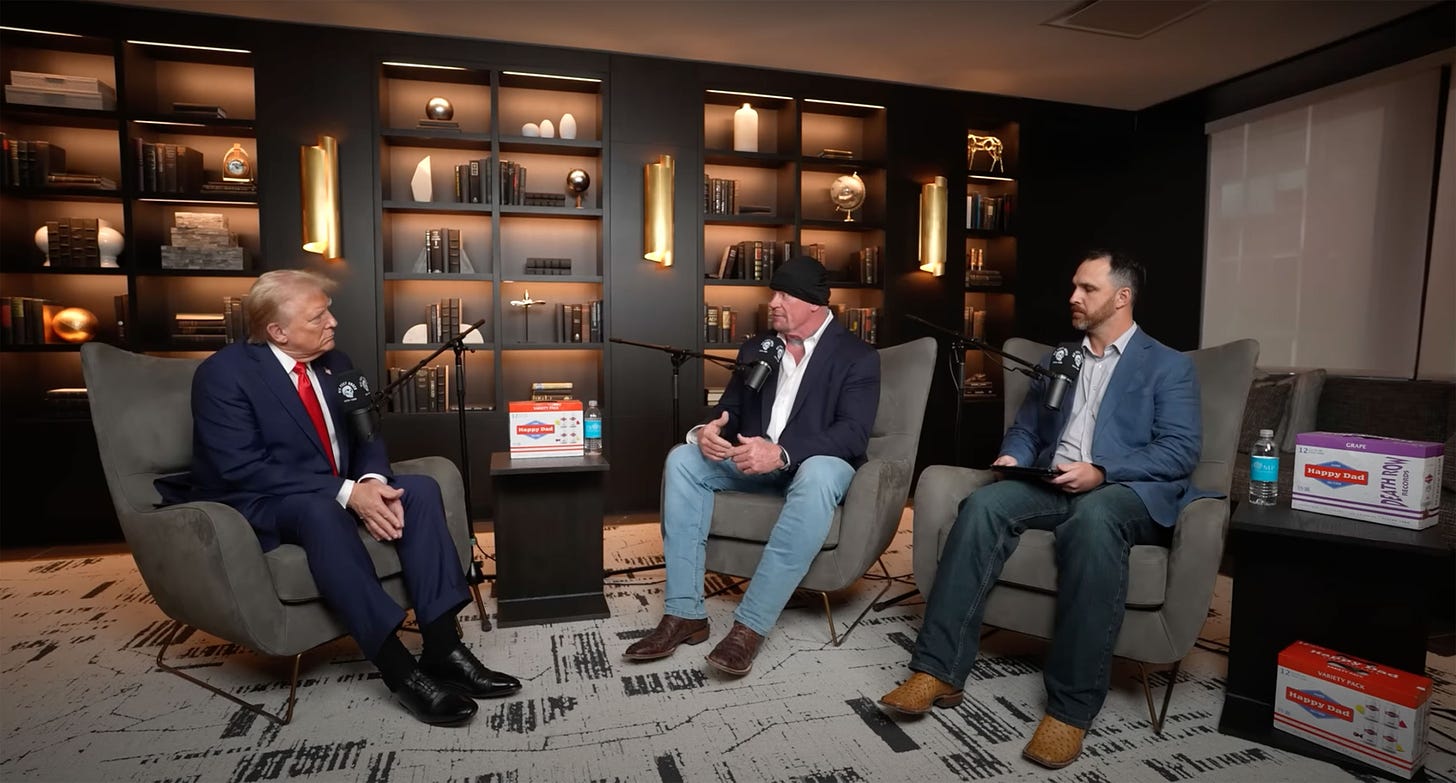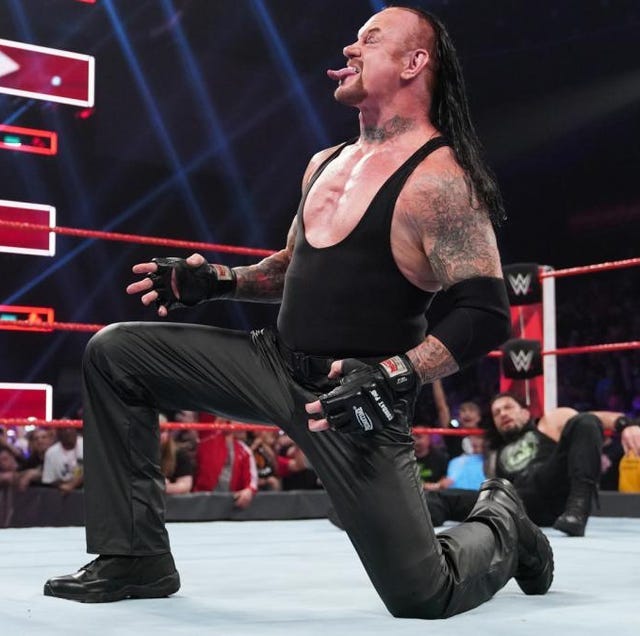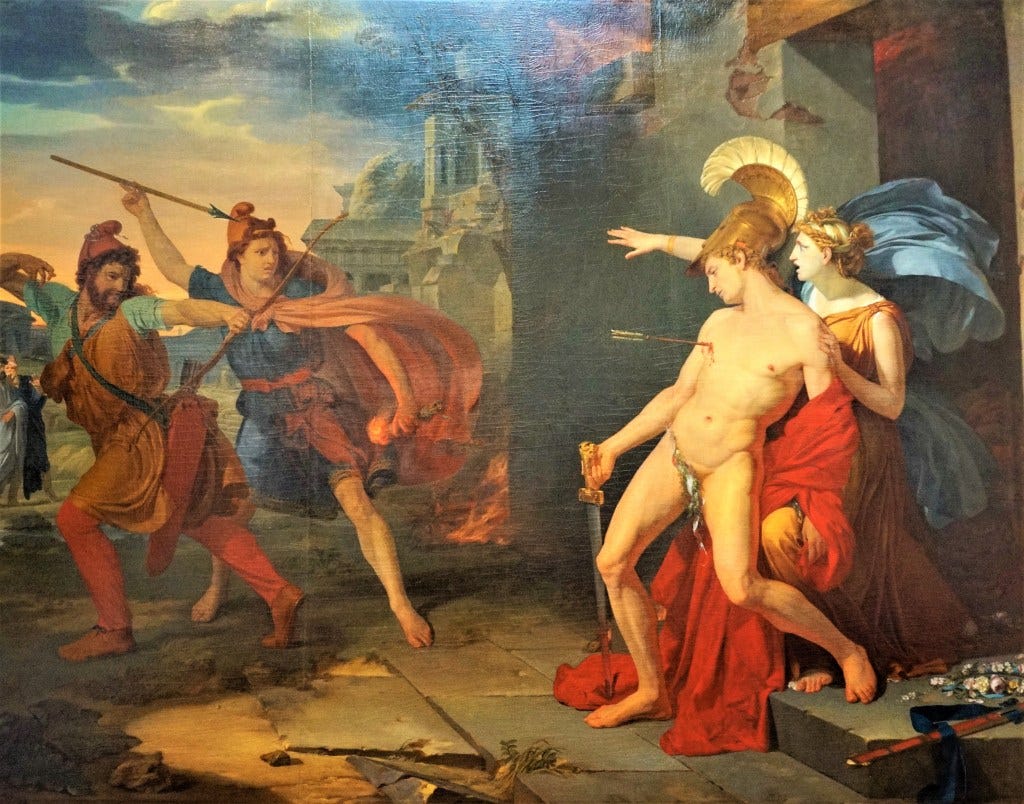
How are we to define “sports washing” vis-a-vis the Trump campaign in 2024? Our understanding of the term nowadays leans heavily on the international sports investment strategies pursued by Russia (Summer 2014 Olympics),Qatar (World Cup, 2022) and Saudi Arabia (Liv Golf; WWE). Azerbaijani dictator Ilham Aliyev regularly uses sports washing as a shiny bauble to distract his people as he ruins the county’s ecosystem with emissions. But sports washing goes back farther than Saudi Arabia’s Vision 2030 Plan. In fact, it goes back to remote antiquity and the satisfaction of the most immediate and basic requirements of a populace as opposed to archaic rulers presenting citizens with edifying public policy. Sports washing is defined by Aaron Ettiger as a short-hand way of criticizing (largely) “non-democratic regimes or large corporations for using investment in world-renowned athletes, sports clubs, and sports events to detract from illiberal, non-democratic, and/or exploitative practices in their home countries or businesses.” In other words, an autocratic distraction.
At the end of her losing campaign for President, Kamala Harris tried to persuade potential voters on The Howard Stern Show of her love of Formula One racing, but it was met with the sound of crickets. It seemed as artificial an announcement as the one about her gun ownership (Glock), crowbarred into an interview, curiously enough, with Oprah. But irregular voting sports fans probably cannot be reached in the audience of an Oprah interview or Howard Stern anymore. Joe Rogan, whose name is inextricably linked to ultimate fighting, has inherited Stern’s politically incorrect, anti-vax audience. And though Stern has since conspicuously evolved, Rogan now has seven times his audience. And after Harris appeared on the SNL “mirror image” cold open skit, Trump asked for and received “equal time” — but not on a comparable NBC comedy property. “A direct-to-camera appeal from Trump to ‘go and vote’ aired during this evening's NASCAR post-race show,” Brian Stelter reported.
Despite attempts by HarrisWorld to successfully outreach to the various American sports cultures, nothing seemed copacetic. Does anyone, ladies and gentlemen of the jury, remember “Athletes for Harris?” (Averted Gaze) Neither do I. “Sports and culture have sort of merged together, and as sports and culture became more publicly and sort of natively associated with this Trump-conservative set of values, it got more complicated for athletes to come out in favor of us,” (Deputy Harris campaign manager Rob Flaherty) admitted to Semafor’s Max Tani earlier this week.
Trump’s sports washing of his own campaign, however, appeared a seamless endeavor. Because there is — how does one put it? — a certain organicity to sports fandom and the far-right, authoritarian manqué candidates. And by that I mean that the sports fandom ecosystem has become one with right-wing culture, particularly in the ‘24 election cycle. They share the ethos, at least on paper, that competition is the solution to most problems and that a certain tolerance for violence is acceptable, at least in the bloodsports. Further, I suspect that this is a key component — although not the only component — in the crazy vibe-shift of Latino men switching allegiance to the Republican party and Trump this election from the Rio Grande Valley to Pennsylvania. Sports washing helped the Republican party overtake the Democrats as the working class party for people with income under $50,000 a year.
I remember the first time that Trump’s outreach to sports fandom deeply worried me during the campaign. For many, sports fandom is identity politics. Trump went on “The Undertaker’s” podcast late in the closing days of the campaign. As Trump was forging alliances with irregular voters, Harris was raising large donations in Hollywood and San Francisco and New York with millionaire celebrities. The Undertaker, if you do not know, is one of the most popular professional wrestlers of the last quarter-century. Millennial WWE wrestling fans view him as naught else but wholly godlike, though relateable. And on that podcast (which has of this writing 949,000 views), Trump joked about multiple marriages and about his love of “Haystacks Calhoun,” a 1950s-era wrestler that few outside of the very insular, very masculine-nostalgic culture would ever know about. But it is the kind of talk that legitimized him with a certain type of voter, one, I worried, that fell into the category of “irregular” voter and thus would slip under the radar of pollsters.
The interview, as it happened, was Trump’s 100th podcast — a first for any candidate for President. Historians of the future will probably regard it as an inflection point of the same magnitude as JFK’s conquest of the “cool” new medium of television during the 1960 Presidential debates. It was asymmetric campaign warfare, one, ultimately, that would negate the hundreds of millions of dollars that the Harris campaign had amassed en route to becoming the candidate of the elites. Jake Lahut of CJR wrote of the Trump/Chris LaCivitta podcast strategy:
‘This is the Donald Trump that people don’t get to see,’ the Undertaker said. ‘I know you’ve got that tough-guy persona, and that bravado, but this is good, this is fun…. You’ve made politics fun again’ … Podcast audiences have evolved since the start of the pandemic, according to Gabriel Soto, the senior director of research at Edison Research, a firm that’s been tracking podcast data since 2006. While audiences are still disproportionately composed of people with higher degrees and incomes—urban liberal types—recent years have seen an influx of podcasts for listeners without college degrees and, in particular, younger men. More importantly, Edison’s research over the summer found that 19 percent of regular podcast listeners were undecided voters.
That’s an obvious target for the Trump campaign, which has homed in on undecided and politically disengaged young men as a key demographic in its effort to defeat Vice President Kamala Harris.
Soonafter the appearance and right before Election Day, Undertaker endorsed Trump. This came as not much of a surprise, as Trump gained some of his difficult-to-measure fan base in rust belt states from his time as a performer before becoming a WWE Hall of Famer. Trump was one of the first presidential candidates in history to take wrestling fans — and wrestling fan psychology — seriously. And then the Trump assassination attempt (another pivotal moment), which sliced his ear, could only be properly construed by a wrestling fan as under the category of “getting color.” Or, rather, “getting juice the hard way.” To evangelicals, it was proof of his righteousness.
For the record, The Corsair has been covering the oily Vince McMahon and his role in the death of the territories almost as long as we have been covering Trump. Could Bernie have made the case — in North Carolina, in Georgia, in the Mid-Atlantic? — that Trump’s pals, the McMahons, were responsible for the death of the territories, great American small businesses, all. But as his finishing maneuver, his coup de grace, Trump cruelly appointed Linda McMahon as head of the — you guessed it — Small Business Administration. Could Bernie have made that case against Trump as sympatico with the working class sports aesthetic? We will never know, but HarrisWorld — determined to run a Conde Nast, circa 1995, campaign — presented itself as entirely incapable of engaging with that sort of voter.
Why, exactly, do right-wing movements mesh so seamlessly into sports culture? Human civilization is as old as despotic regimes as is sports washing. A blog post of the Human Rights Foundation reaches far back to the thumotic excess of Alcibades, in the 4th century, BC. Thumos is the ancient Greek concept of “spiritedness,” and is also used to express the human desire for recognition. And so, thumotic excess is related to shamelessness:
In the Olympic Games of 416, Athenian statesman and military general Alcibiades fielded seven teams in one of the most prestigious Olympic events, the four-horse chariot race known as the quadriga.
It was a staggering display of wealth and power, carefully staged to present Alcibiades as an unstoppable force. He emerged victorious while his other teams placed second and fourth. Such an achievement was unprecedented in the Panhellenic Games.
Victory at Olympia granted athletes status and influence, catapulting them to the elite echelons of Greek society. Alcibiades, however, was no ordinary victor. Leveraging his established political standing, he utilized his victory to bolster his popularity and shape Athens’ image as a formidable and resourceful city, a crucial narrative at the height of the Peloponnesian War with Sparta, which Athens happened to be losing.
Upon his return as champion, Alcibiades used his success at the Games to persuade the assembly to appoint him as leader of an Athenian military expedition to Sicily.
“More than to others, Athenians, it is up to me to take the lead. And I think that I am worth it,” Alcibiades was recorded saying in his speech by Thucydides. “On the basis of my splendid performance at the Olympic Games, the Greeks assumed our city to be very powerful and greater than it really is. Custom regards such displays as honorable, and they cannot be made without leaving behind them an impression of power.”
The flowery rhetoric notwithstanding, this sounds positively Trumpish. Or at the very least, MBS-sy. It is one of the earliest instances of sports washing tangled up in thumotic excess. Of late, Saudi Arabia’s aggressive moves into professional sports have been joined by Kagame’s Rwanda. The African continent, it should be noted, is no stranger to sports washing. Alcibiades, through Thucydides, gave voice to a politics so raw, so powerful, so as to be universal. It is a political instinct embedded in the retile brain of man. The bread-and-circus model of distracting the populace to hold onto power. October 30 marked the 50th anniversary of the infamous “Rumble in the Jungle,” in which Muhammad Ali knocked out heavyweight boxing champion George Foreman in the eighth-round in the Congo. Sixty thousand people attended the event at The Tata Raphaël Stadium in Kinshasa, which is now — surprise! — in terrible disrepair. And former Democratic Republic of the Congo dictator Mobutu Sese Seko is long gone from power, unburied and unsung. His lasting legacies are the brutal civil wars that killed between 1 million and 3 million of his people. Charmed, I’m sure.
After his election victory, Trump and his close allies triumphantly payed homage to sports fans that voted for him by attending a UFC event. The thumotic excess was palpable. “Trump was accompanied by UFC President Dana White and the pair headed to their cageside seats to Kid Rock’s ‘American Bad Ass,” Will Weisert and Dan Gelston reported for the AP. “The MSG crowd chanted ‘USA! USA!’ right before the main card was about to start and then again throughout the action,” they continued. To his credit, the UFC President soon after decided to get out of political blood sports altogether. “‘I’m never f***ing doing this again,’ White told The New Yorker. ‘I want nothing to do with this s***. It’s gross. It’s disgusting.’”
I mean, after all, rear naked choke holds are legal in the UFC. But no referee for his organization would ever allow a fighter to get away with applying one for six minutes, as Danny Penny did to the agitated Jordan Neely.
“My sense is that only Joe Biden and his family really know how he feels these days. I have shaken his hand once and exchanged pleasantries at an event for a PublicAffairs book in 2019. We are the same advanced age, which along with race, gender, and sexual orientation is an identifier — for better or worse — in measuring where we fit in the national landscape. I have watched Biden’s presidency with chagrin, not for his policies (which on the whole I have agreed with) but for the way he was regarded by the country — even by the voters who gave him the largest popular vote total in history. The Biden shrug was dominant. I especially recall the day he was on his way to the Capitol to advocate for an important bill when Kyrsten Sinema, then a Democratic senator, said she would vote against him, dooming the legislation. I wrote that presidents need to be inspiring like Barack Obama or intimidating like Donald Trump. For all four years, Joe Biden was neither. At the outset, he made a fundamental mistake in calling himself a ‘transitional’ president, becoming essentially a lame duck from day one. Even before the 2022 midterms, commentators (including savants who had made their names and careers as political advisers to Clinton and Obama) were dismissive – first sub rosa and then publicly -- about Biden’s prospects for reelection. When the Democrats scored surprising victories in the 2022 midterms, Biden might have announced that he would not launch another campaign and would have been hailed. Instead, he adamantly insisted that he would run again. Why?” (Peter Osnos)
“Local TV news is in trouble. For decades, 24/7 cable news and digital news sites have chewed away at its audience base. Younger audiences have little interest in tuning in at 6 or 11 p.m. to catch a traditional local newscast. ‘If local TV news is going to survive,’ one industry veteran said, ‘they’re going to have to totally break the model and try something totally different.’ In the latest episode of ‘The Poynter Report Podcast,’ Elliott Wiser, a journalism professor at the University of South Florida St. Petersburg and former executive at local TV stations and a 24-hour cable news channel, suggested some sweeping changes that could give the medium a fighting chance. Wiser’s prescription is to transform the 5 or 6 p.m. news slot into more of a visual ‘talk radio type thing,’ with guests talking about the topic of the day. Acknowledging the death of appointment TV, he would eliminate the staple 11 p.m. newscast altogether. The morning news, Wiser said, should be pared down to just an hour, focused primarily on weather and traffic, with some headline news. The real shift, however, would be in redirecting resources away from TV and toward digital platforms. Wiser believes local stations should make TV a secondary medium and redirect the majority of their staff to work online, on social media and in other digital spheres.” (Ren laForme/Poynter)




